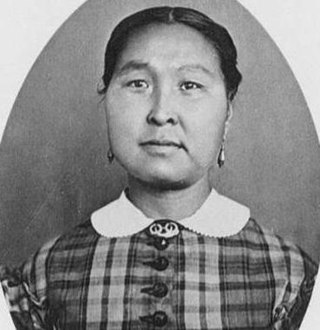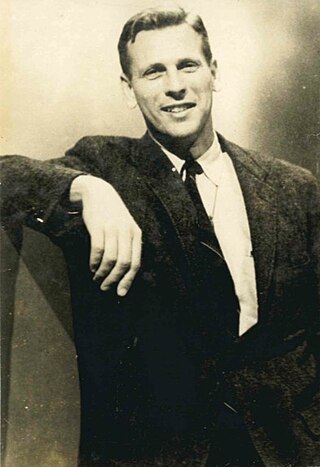Hardcore hip hop is a genre of hip hop music that developed through the East Coast hip hop scene in the 1980s. Pioneered by such artists as Run-DMC, Schoolly D, Boogie Down Productions and Public Enemy, it is generally characterized by anger, aggression and confrontation.

Rude boy is a slang term for a subculture that originated from 1960s Jamaican street culture. In the late 1970s, there was a revival in England of the terms rude boy and rude girl, among other variations like rudeboy and rudebwoy, being used to describe fans of two-tone and ska. This revival of the subculture and term was partially the result of Jamaican immigration to the UK and the so-called ”Windrush” generation. The use of these terms moved into the more contemporary ska punk movement as well. In the UK and especially Jamaica, the terms rude boy and rude girl are used in a way similar to gangsta, yardie, or badman.

Paul William "Sage" Francis is an American independent underground rapper from Providence, Rhode Island. He is the founder and CEO of Strange Famous Records.

Andre the Giant Has a Posse is a street art campaign based on a design by Shepard Fairey created in 1989 while Shepard attended the Rhode Island School of Design in Providence, Rhode Island. Distributed by the skater community and graffiti artists, the stickers featuring an image of André the Giant began showing up in many cities across the United States. At the time, Fairey declared the campaign to be "an experiment in phenomenology". Over time, the artwork has been reused in a number of ways and has become worldwide. Fairey also altered the work stylistically and semantically into OBEY Giant.

Diamond Jenness, was one of Canada's greatest early scientists and a pioneer of Canadian anthropology.

The Haffenreffer Museum of Anthropology is Brown University's teaching and research museum. The museum has a 2,000-square-foot (190 m2) gallery in Manning Hall on Brown's campus in Providence, Rhode Island. Its Collections Research Center is located in nearby Bristol, Rhode Island.

Thomas Alexander Tefft was an American architect, from Providence, Rhode Island. Tefft, one of the nation's first professionally trained architects, is considered a master of Rundbogenstil and a leading American proponent of its use. Prior to his untimely death, Tefft "offered the most advanced designs of [his] day in America"
Jonathan Russell was a United States representative from Massachusetts and diplomat. He served the 11th congressional district from 1821 to 1823 and was the first chair of the House Committee on Foreign Affairs.

Bernard Dolan is an American rapper, spoken word artist, activist, screenwriter, and composer based in Providence, Rhode Island.
Kim Davis, better known by her stage name of Choice or MC Choice, is an American female rapper based out of Houston, Texas. She is best known for her album The Big Payback, which first came out in 1990. Signed to the label Rap-A-Lot Records, her strident, sexually explicit album prefigured the image and sound of later female rappers such as Lil' Kim, with music journalist Roni Sarig mentioning Choice in Third Coast: Outkast, Timbaland, and How Hip-Hop Became a Southern Thing as one of the U.S. south's underground kings and queens of rap alongside the Geto Boys and Street Military.

The Joseph and William Russell House is a historic house at 118 North Main Street in the College Hill area of Providence, Rhode Island. It is a brick Georgian house built in 1772. Its original interior woodwork has been removed and distributed among museums around the United States.

Taqulittuq was an Inuk interpreter and guide. She and her husband Ipirvik worked alongside Arctic explorer Charles Francis Hall and joined him in his search for Franklin's lost expedition in the 1860s, as well as the Polaris expedition to reach the North Pole

Providence is the capital and most populous city of the U.S. state of Rhode Island. The county seat of Providence County, it is one of the oldest cities in New England, founded in 1636 by Roger Williams, a Reformed Baptist theologian and religious exile from the Massachusetts Bay Colony. He named the area in honor of "God's merciful Providence" which he believed was responsible for revealing such a haven for him and his followers. The city developed as a busy port, as it is situated at the mouth of the Providence River at the head of Narragansett Bay.

The Sea of Ice, (1823–1824), is an oil painting that depicts a shipwreck in the Arctic by the German Romantic painter Caspar David Friedrich. Before 1826 this painting was known as The Polar Sea.
Tim Barsky is an American musician from Boston, Massachusetts. Based in the San Francisco Bay Area, he is a beatboxer-instrumentalist, playwright-performer, and urban circus artist. He is a graduate of Brown University with a degree in Islamic and Judaic religious studies. He also studied at the Berklee School of Music and with the Chasidic folklorist and archivist Fishel Bresler.

Rufus C. Somerby (1832–1903) was an American entertainer, showman, and panoramist in the mid-nineteenth century, and one of a very few men of his profession to leave behind any memoirs or account of his activities. He is chiefly known through a series of articles published in 1903 and 1904 in The Billboard, the ancestor of today's "Billboard Magazine," which at the time was a trade journal for circus, carnival, and theatrical performers and managers. Somerby operated several moving panoramas under the management of Boston's George K. Goodwin, including a panorama of "Dr. Kane's Arctic Voyages," and also was involved in mechanical theatres. He worked as an agent for P.T. Barnum, bringing one such mechanical theatre, "Thiodon's Theatre of Arts," from the United Kingdom to the United States for an exhibition at Barnum's American Museum. Later, after this mechanical show was completed his run, he oversaw its re-making into two smaller such theatres, one of which had its figures re-painted to as to present not "The Battle of Balaclava" in the Crimean War, but the assault on Fort Sumter, by a panorama broker in Providence, Rhode Island.

John Holden Greene (1777-1850) was a noted early nineteenth century architect practicing in Providence, Rhode Island. The bulk of his work dates to the late Federal period, and is mostly in the architectural style of the same name. Greene is responsible for the design of over fifty buildings built in the city between 1806 and 1830, almost half of which are still standing.

Tristram Potter Coffin was an American folklorist and leading scholar of ballad texts in the 20th century. Coffin spent the bulk of his career at the University of Pennsylvania, where he was a professor of English and a co-founder of the Folklore Department. He was the author of 20 books and more than 100 scholarly articles and reviews.

"No Sell Out" is a hip hop piece composed by American drummer Keith LeBlanc and credited to Malcolm X, released in November 1983 on Tommy Boy Records. It marked the one of the earliest usages of sample-based composition in popular music as well as being the first hip hop song to use Malcolm X's voice for artistic and political reasons.

Charles Handy Russell was an American merchant and prominent banker with the National Bank of Commerce in New York.















